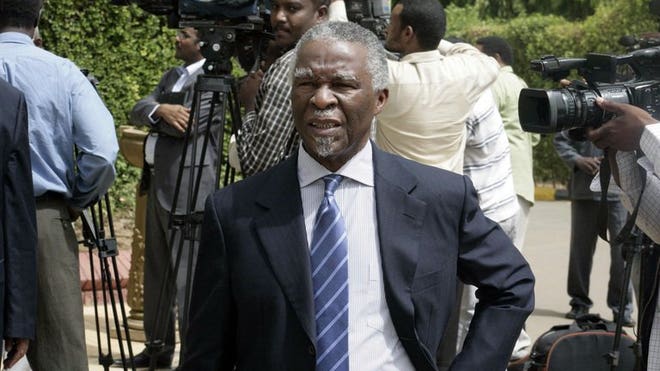ADDIS ABABA (AFP) – Sudan will delay closing an economically vital pipeline carrying South Sudanese oil, the Ethiopian foreign ministry said on Friday.
"The Government of Sudan has agreed to postpone for at least two weeks the deadline by which it will shut down the pipelines carrying oil from landlocked South Sudan for export through Port Sudan," the foreign ministry in Addis Ababa said on its website.
The announcement follows a visit to Khartoum on Thursday by Ethiopian Foreign Minister Tedros Adhanom Ghebreyesus, whose country chairs the Inter-Governmental Authority on Development (IGAD), an East African regional bloc.
Tedros was accompanied by Thabo Mbeki, the African Union's top mediator between Sudan and South Sudan.
After talks with Sudan's President Omar al-Bashir, Mbeki said he asked for more time so the AU can investigate allegations made by Sudan and South Sudan that they are supporting rebels operating in each other's territory.
In June, Khartoum told oil companies they had 60 days to stop transporting crude from South Sudan through a Sudanese export pipeline after Bashir accused the Juba government of backing rebels in the north.
A source close to the oil industry said this week that full preparations to close the pipeline had not begun and crude was still flowing despite the previous 60-day deadline which was to expire around August 7.
China's special envoy to Africa, Zhong Jianhua, also met Bashir on Thursday, the Ethiopian statement said.
Zhong "presented proposals for a 15 days delay in exchange for holding intensive consultations to remove the points of tension between the two neighboring countries to ensure the flow of oil through flexible and secure borders."
China is a major investor in South Sudan's oilfields, and in the main export pipeline.
Sudan's foreign ministry spokesman in Khartoum could not immediately be reached for comment.
The AU and IGAD last Monday launched the panel to probe allegations of rebel support, saying the three senior military officers were expected to complete their work in six weeks.
Regional nations also began determining the centreline of a demilitarised buffer zone that is to straddle the 2,000-kilometre (1,240-mile) undemarcated border between the two countries.
Bashir told Mbeki and Tedros that he was keen "to establish good relations with South Sudan... and to realize peace and stability between the two countries through implementation of the Cooperation Agreements which were signed by the two countries," the official SUNA news agency reported.
The nine agreements included a deal on fees which South Sudan would pay for sending its oil through Sudan for export. They also allowed for establishing the demilitarised zone designed to cut cross-border rebel support.
Signed in September, the deals were not implemented until March because of Khartoum's concerns over the South's support for rebels.
Analysts said Bashir abruptly ordered the export pipeline shut in June after continued rebel attacks humiliated the Sudanese authorities.
Observers say that, despite denials, both governments have aided each other's insurgents.
The South's oil export revenues, and the fees due Khartoum for use of the oil infrastructure, are potentially worth billions of dollars to both impoverished nations.
Read more: http://www.foxnews.com/world/2013/07/26/sudan-delays-oil-pipeline-closure-ethiopia/#ixzz2aHYbvIue

